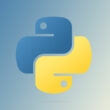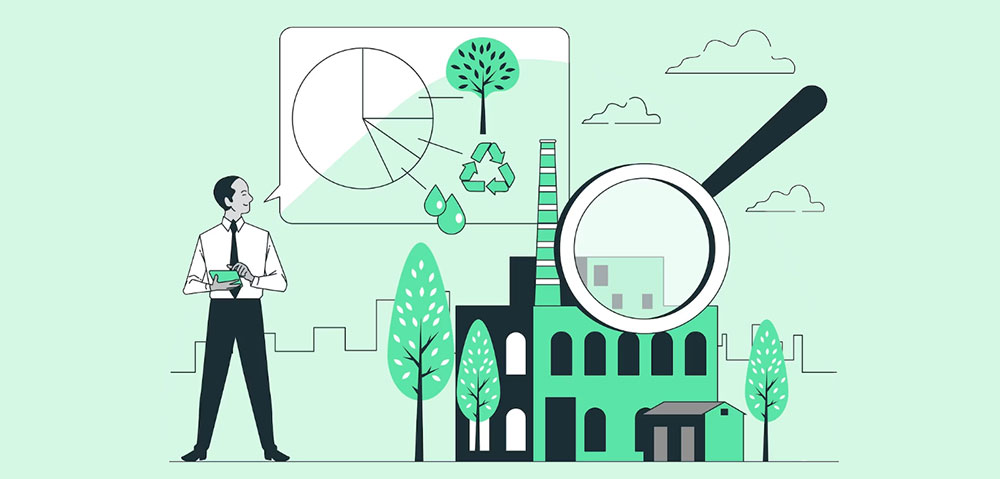Charting a path as a Product Manager can feel like navigating a complex labyrinth with its twists, turns, and the occasional leap into the unknown. It’s an expedition blending methodical strategy with bursts of innovative thinking.
Here’s the scoop: if your eyes are on the peak of the mountain – that coveted role where you call the shots and breathe life into visionary products – you’ll need a sherpa. Consider this article your trusty guide.
You’re about to embark on an ascension, dissecting the product manager career path, uncovering the basecamp skills, the milestone certifications, and the leadership attributes needed to plant your flag at the summit.
By article’s end, you’ll have mapped out a personalized route; savvy in the art of juggling project management, adept in Agile methodologies, and ready to collaborate across cross-functional teams.
You’ll also appreciate the worth of a polished product roadmap and grasp the subtleties of becoming that growth product manager everyone’s after.
So, gear up and strap in as we journey through the essentials of a product manager’s odyssey – product lifecycle management, career progression, and the bigger picture of joining the elite directors of product management.
Key takeaways
- Technical Background: A technical background is beneficial but not mandatory for a product manager. Key qualities include leadership, decision-making, communication skills, and the ability to empathize with users and define a product vision.
- Transitioning from Other Fields: Transitioning into product management from fields like business analysis, engineering, marketing, or sales is common. It involves gaining exposure to product development, reading up on the subject, attending workshops, and networking with existing product managers.
- Essential Skills: Success in product management requires strong communication, strategic thinking, empathy for users’ needs, and decision-making abilities, particularly under pressure and tight deadlines.
- Job Market Outlook: The job market for product managers is strong, with digital transformation driving demand across various industries. Remote work has further expanded job opportunities beyond geographical limitations.
Understanding the Role of a Product Manager

The life of a Product Manager is filled with variety and surprise. One day you might be deep-diving into customer feedback, the next day you’re planning the next product release or discussing marketing strategies.
Key Responsibilities of a Product Manager
If you thought product management was all about managing products, well, you’re half right.
- The job involves a mix of strategic thinking and hands-on tasks.
- As a Product Manager, you’ll lead the product development process from start to finish. This includes defining the product vision, gathering and prioritizing product requirements, and working closely with the engineering, sales, marketing, and support teams to ensure the product goals are met.
- You’ll also need to track the market trends, understand the competitive landscape, and gather insights from customer feedback.
Skills Required for a Product Manager

Soft Skills
Being a Product Manager isn’t just about having the right technical skills. It’s also about the soft skills, the ones that help you navigate the tricky waters of interpersonal relationships.
- Communication is key. You’ll be dealing with different teams, stakeholders, and customers, each with their own language and perspective. Being able to communicate effectively with all of them is crucial.
- Leadership skills are also important. Remember, you’re the conductor of that orchestra. You’ll need to inspire and lead your team towards a common goal.
- Problem-solving skills are a must. There’ll always be issues that pop up unexpectedly. Your ability to think on your feet and come up with creative solutions can make or break a product.
Hard Skills
Of course, you can’t ignore the technical side of things. As a Product Manager, you should have a good understanding of the product you’re managing.
- This might involve knowledge in areas like software development, data analysis, UX design, and more. It varies depending on the product and the industry.
- You’ll also need to be good with tools like product management software, project management tools, and data analytics tools.
The Importance of Empathy in Product Management
Product management is, at its core, about solving problems for people. And to do that effectively, you need to understand people.
- This is where empathy comes in. Empathy allows you to step into the shoes of your customers, to see the world from their perspective.
- It helps you understand their pain points, their needs, and their desires.
- And with this understanding, you can create products that truly resonate with them, products that solve their problems and make their lives better.
The Product Manager Career Path
You know what they say, every journey starts with a single step. For those interested in the product manager career path, that first step often involves an entry-level role.
Entry-Level Roles in Product Management
Associate or Junior Product Manager
Everyone has to start somewhere, and for many product managers, that “somewhere” is the role of an Associate or Junior Product Manager.
- It’s in this role where you’ll get your hands dirty, learning the ins and outs of product development.
- You’ll work closely with a senior product manager or a product leader, helping with tasks like market research, competitive analysis, and customer interviews.
- It’s a chance to build your skills, grow your knowledge, and get a taste of what life as a product manager is really like.
Mid-Level Roles in Product Management
Product Manager
After some time in an entry-level role, you might find yourself ready to take on more responsibility. That’s where the role of a Product Manager comes in.
- As a Product Manager, you’ll get to lead product development projects, working closely with different teams to turn ideas into reality.
- You’ll have more say in defining the product vision, setting the strategy, and making key decisions.
Senior Product Manager
With more experience and a successful track record, you might be ready to step up to a Senior Product Manager role.
- Here, you’ll get to oversee multiple product lines or a significant part of a larger product.
- You’ll have more influence over the direction of the product and more responsibility for its success.
Executive Roles in Product Management
Director of Product/Product Leader
A little further along the product manager career path and you might find yourself in an executive role like Director of Product or Product Leader.
- You’ll be responsible for setting the overall product strategy, coordinating with other departments, and making high-level decisions that impact the entire product portfolio.
- It’s a challenging role, but it’s also an opportunity to make a big impact.
Chief Product Officer/VP of Product
The pinnacle of the product manager career path is the role of Chief Product Officer or VP of Product.
- You’ll oversee all product-related activities in the organization, ensuring everything is aligned with the company’s overall goals.
- It’s a position that requires experience, strategic thinking, and a deep understanding of the market and the customers.
Other Roles in Product Management
Like a rich tapestry, the world of product management is filled with a variety of roles, each with its unique set of tasks and challenges.
Technical Product Manager
A Technical Product Manager, or TPM for short, is a bit like a regular product manager but with a focus on the technical side of things.
- If you’re someone who loves diving into the nitty-gritty of technology, then this might be the role for you.
- You’ll need a strong background in technology, along with a good understanding of how to translate technical complexities into strategic decisions.
Product Owner
Another role that often pops up in the product management world is that of a Product Owner.
- Typically found in Agile development environments, a Product Owner is the person responsible for defining and prioritizing the product backlog.
- They work closely with the development team, ensuring they understand the product requirements and are working on the tasks that deliver the most value.
Differences and Similarities with the Product Manager Role
While there’s some overlap between these roles and the role of a Product Manager, there are also some key differences.
- A TPM, for example, is more focused on the technical aspects of the product, while a Product Owner is more involved in the day-to-day tasks of managing the product backlog.
- However, all these roles require a good understanding of the product, the market, and the customers, and they all contribute in their own way to the success of the product.
Education and Certifications for Product Managers

Ever wondered what it takes to walk down the product manager career path? Let’s break it down.
Educational Backgrounds Commonly Found in Product Management
You might be surprised to know that product managers come from a wide range of backgrounds.
- Some have degrees in business or marketing, while others come from a technical background like computer science or engineering.
- There are also those who studied psychology or sociology, skills that can come in handy when trying to understand customer needs and behaviors.
Certifications Relevant to Product Management
Beyond formal education, there are also a number of certifications that can boost your credentials as a product manager.
- These range from courses on product management basics to more specialized certifications in areas like Agile development or data analytics.
- There’s no one-size-fits-all approach here. The best certification for you depends on your current skills, your career goals, and the specific needs of the industry you’re in.
Salary and Job Outlook for Product Managers
In the journey down the product manager career path, the reward isn’t just in the thrill of bringing a product to life, it’s also reflected in your paycheck.
Salary Expectations at Different Levels
When you start out as an Associate or Junior Product Manager, don’t expect to be rolling in the dough just yet.
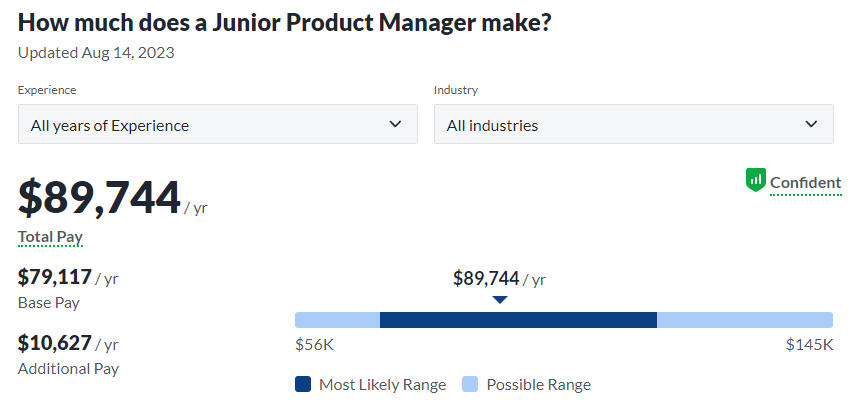
The salaries at this level are decent, sure, but it’s really more about gaining experience and learning the ropes.
As you move up to a Product Manager or Senior Product Manager role, that’s when things start to look a bit rosier.
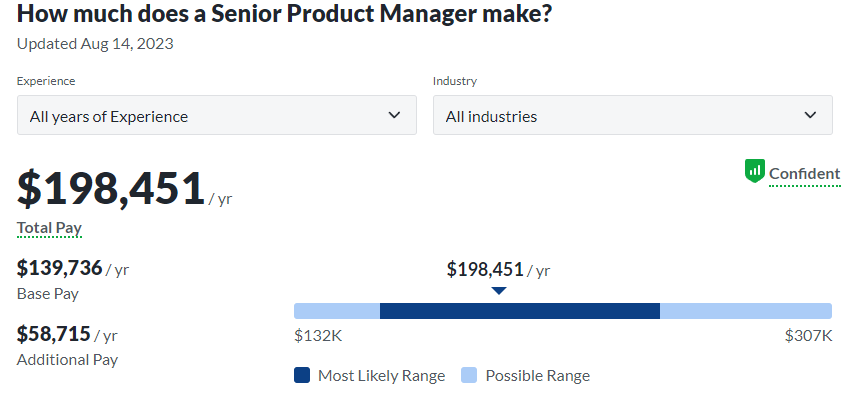
Your experience and increased responsibilities will be reflected in your salary.
And when you make it to an executive role like Director of Product or Chief Product Officer, well, let’s just say you won’t be pinching pennies.
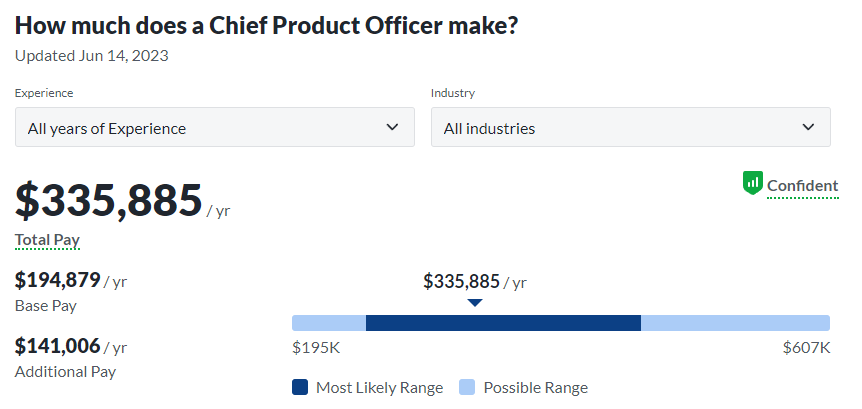
It’s not just about the money, though. At this level, you’ll have the satisfaction of knowing you’re playing a key role in shaping the company’s success.
Job Outlook and Demand for Product Managers
As for the job outlook, let’s put it this way: in the world of business, product management isn’t going anywhere.
Companies will always need people who can guide the product from concept to launch, people who can bridge the gap between the technical and business side of things.
Transitioning to and from Product Management
One of the cool things about the product manager career path is its flexibility. You don’t need to start out in product management to end up there, and you don’t need to stay there forever.
Common Backgrounds of Product Managers
Like I mentioned earlier, product managers come from a wide range of backgrounds.
- You might start out in a technical role like software development or data analysis and transition into product management.
- Or you might come from the business side, with a background in marketing or sales.
- What’s important is your ability to understand the product, the market, and the customers, and your willingness to learn and grow.
Potential Career Paths after Product Management
Just as you can transition into product management, you can also transition out of it.
- You might move into a more specialized role, like UX design or data science.
- Or you might decide to go broader, moving into a general management or executive role.
FAQ On Product Manager Career Path
What Does a Product Manager Actually Do?
Think conductor of an orchestra, but for products. They keep the team in sync, decide on the playlist (features, that is), and ensure the audience (users and stakeholders) get a performance worth their time. It’s all about steering the product development lifecycle from idea to launch, and beyond.
Is a Technical Background a Must for Product Managers?
Not a hard rule, but it helps. Some tech know-how means you get the lingo, can empathize with devs, and understand the challenges. It’s about credibility in a technology product manager role. But hey, many PMs shine without coding skills, thanks to strong project management skills.
What’s the Typical Career Progression for a Product Manager?
You’ll likely kick things off as an Associate PM, soak up wisdom, handle smaller features, or maybe a single product. From there, climb to a full-fledged PM, then Senior. If you’ve got that leadership spark, you could be gazing from the heights of Director or even Chief Product Officer one day.
Do Product Managers Need an MBA?
Need? No. But it’s a shiny badge that opens doors. MBAs equip you with business strategy might and a networking gold mine. Still, real talk: hands-on experience, a nose for the market, and aceing product management training can rival those three little letters.
How Important Are Certifications in a Product Manager Career Path?
Listen, certifications are like power-ups. Not must-haves, but they give you an edge. They show dedication, skill-upping, and that you mean business. Certifications like Pragmatic Marketing or Certified ScrumMaster validate your expertise, especially if you’re new to the game.
What Skills Are Essential for Product Managers?
Picture a Swiss Army knife: versatility is key. Strategic thinking, user-centric design instincts, analytical prowess to dice through data, and A-grade communication chops.
You’ll also be juggling market research analysis, cross-functional teamwork, and product roadmapping. Basically, the more skills you have, the better.
Can a Product Manager Work Remotely?
You bet. Thanks to digital wonders, PMs can orchestrate from almost anywhere. Sure, face-to-face has its perks, but product management’s adaptability shines in the remote work galaxy. Tools like Jira, Asana, and video conferencing help keep that team groove tight.
How Does Product Management Vary Between Industries?
Think same song, different rhythm. Core product manager responsibilities stay constant: plan, prioritize, execute. But nuances vary. Tech swims in agile practices, while consumer goods might waltz to a slower tempo, weighing more on market research. It’s about tuning your approach to your industry’s beat.
What’s the Difference Between a Product Manager and a Project Manager?
It’s about the what versus the how. Product managers are visionaries charting the product’s future; they own the ‘what’. Project managers laser-focus on the ‘how’ – the logistics, the deadlines. Both crucial, just different lenses on the creation story.
How Do Product Managers Stay Updated on Industry Trends?
Stagnation is the enemy. Staying sharp means nourishing your know-how with the latest industry events, networking opportunities, and often diving deep into fresh online courses.
The landscape’s always shifting; think quicksand. Books from leading PM thinkers also spark innovation – stay reading, stay ahead.
Conclusion
And there it is. The curtain drop on our deep-dive into the product manager career path. Think of it as a jungle gym rather than a ladder; it’s that dynamic.
You’re now armed with insights from the must-have project management skills to the strategic know-how of a business strategy savant. Embrace that learning curve; it’s a savage, rewarding beast. Whether it’s by snagging certifications, networking your socks off, or mastering the product roadmapping dance, know this: It’s your play.
Consider each nugget of wisdom, every tool from Agile to Google Analytics, as a gear in your kit. Keep your eyes on the prize, that director’s chair isn’t just a dream. It’s there, waiting.
So leap. Iterate. Push that product lifecycle management to its limits. After this read? You’re not just following a path. You’re crafting it. Go out, tailor your journey, freelancers, cubicle warriors, all aspiring PMs – shape products, lead cross-functional teams, and make that digital mark.
If you liked this article about product manager career path, you should check out this article about product management competitive analysis.
There are also similar articles discussing product analytics, product led marketing, product sustainability, and product operations.
And let’s not forget about articles on product portfolio management, lean product development, product engagement, and product evangelism.
- Professional Video: Cinematography Apps Like FiLMiC Pro - April 26, 2024
- Optimizing Your Shopify Store for Maximum Dropshipping Success - April 26, 2024
- Python Explained: What is Python Used For? - April 26, 2024



